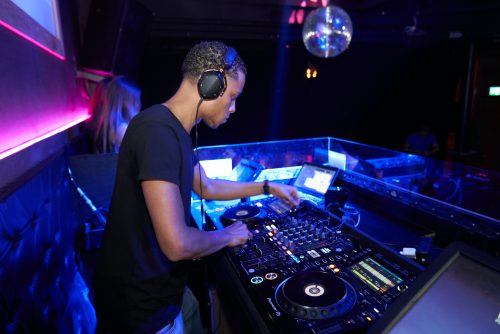
Every famous DJ started out mixing at friends’ parties or in small, local clubs; yes, even the ones that now fill entire stadiums and festival venues. But, if you are good enough, there will come a time when you will be invited to an event abroad, or you’ll have the opportunity to enter the international clubbing scene. Most DJs dream of destinations like Ibiza, Cancun, or Las Vegas, which are known for their legendary nightlife, so Dubai might not seem like the most obvious choice. However, Dubai’s clubbing scene has evolved a lot in the past few years, and it might even jump-start your career as an international DJ.
Does Dubai have a clubbing scene?
Yes, it has. Dubai has actually become one of the up-and-coming nightlight destinations in the world, attracting big crowds of partygoers, which include influencers, sports stars, and other celebrities. Of course, it wasn’t always like this, hence Dubai’s reputation for being conservative and not fun. Since the 90s, Dubai’s travel industry has experienced a significant boost, so more nightclubs were opened to address the increasing demand. These days, the UAE hosts impressive parties have some of the biggest clubbing venues in the world and attracted big names from the industry, such as David Guetta, Martin Garrix, and Don Diablo.
Things to keep in mind when DJing in Dubai
Dubai has a vibrant nightlife that can open many career opportunities for new DJs. However, it’s a bit different from other destinations, and there are a few things you should keep in mind.
First of all, there are no standalone nightclubs in Dubai – they’re only allowed to exist as part of star hotels because those are the only ones that can obtain liquor licenses. So, right from the start, this makes the Dubai clubbing scene a bit exclusive. Otherwise, playing loud music in any venue, whether it’s a park, beach, or residential area, is strictly prohibited and carries heavy fines.
Hotel clubs usually open at midnight and close at 3 am, but keep in mind that all partying venues are closed during Ramadan (the ninth month of the Islamic calendar). In Dubai, the week starts on a Sunday and ends on a Thursday, so the busiest days are Thursdays and Fridays. Clubs typically plan ladies’ nights on Tuesdays, especially those located in busy tourist hotspots.
Apart from the usual clubs, you can also be a DJ for events, which is a great option if you’re finding it hard to get clubbing gigs at first. For example, you can be a DJ for weddings, corporate events, or birthdays. The pay might not be as good as DJing for an exclusive nightclub, but this is an excellent way to build your reputation. No matter what kind of DJ you want to be, remember that working abroad comes with many responsibilities. You will need to invest in DJ insurance to protect your expensive equipment from accidental damage, and you’ll also need a work visa.
Last but not least, you need to be aware of cultural differences. While Dubai’s nightlife is much more dynamic and exciting than it was in the past, it’s still different from the West, and you need to be mindful of your client’s culture.
Interesting Related Article: “4 Important Tips for Starting a Business in Dubai“

